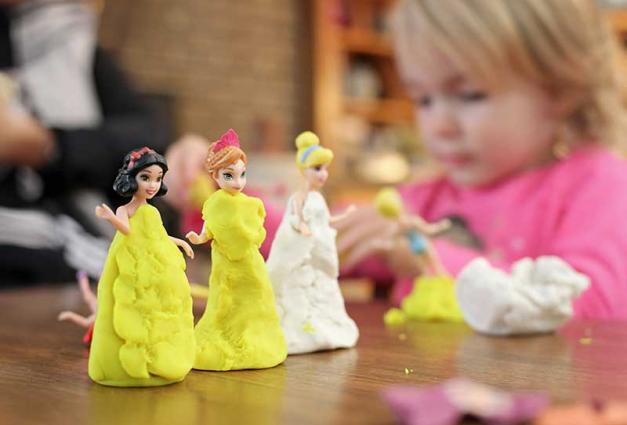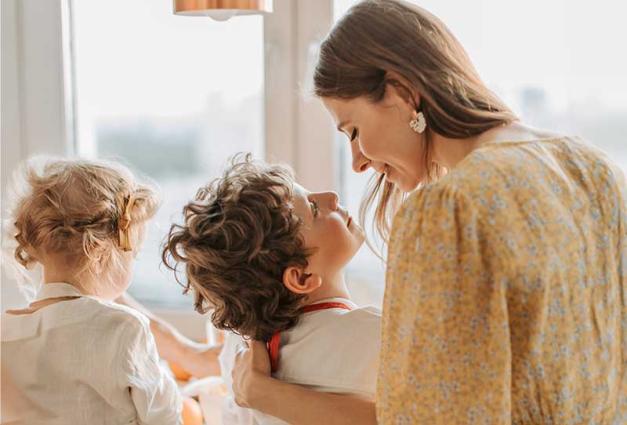Put yourself in the shoes of your 10-year-old self, facing a tough situation at school: your friend is planning a birthday party and made it known around school that you are not invited. This harshness comes without warning or reason, but the message is clear: you're out of the group. When you get home, you throw your backpack by the door, storm up the stairs, and slam the door to your room.
Now imagine: What would it be like to be able to share what you were feeling with a parent? Imagine that your parent is interested in the reasons behind your anger—and rather than punishing you for being disrespectful, they knock on your closed door to ask, "Do you want to talk about it?" What would it feel like to be understood? To have someone sit next to you and share in what you were feeling, for as long as you needed them?
Our recent research aimed to understand the different ways in which parents make sense of kids' emotions, and why this matters for children's development. One way that parents try to understand their kids is through considering thoughts, feelings, and inner states that underlie kids' behavior. In the example above, without such reflection, a parent might think their child is misbehaving or "just being a bad kid." But if the parent is able to reflect more deeply on the possible cause of their child's emotion, they might recognize that beneath the anger is a deeper hurt—a situation that needs repairing, not punishment.
Another way to make sense of children's emotions is through empathy—taking kids' perspectives (just as you stood in the shoes of your 10-year-old self), understanding and "feeling with" their emotions, and showing concern for their well-being. In the example above, a parent who hears about her child's exclusion from the party might imagine what it's like from their child's point of view, resonate with their child's feelings of hurt and betrayal, and express concern (for example, by saying, "If my friends did that to me, I would feel frustrated and hurt, too"). In other words, if the parent can experience the child's hurt, they can understand more deeply what this experience might be like and genuinely comfort their child.
The Power of Parents' Reflection and Empathy
To understand how parents' reflection and empathy work together, we conducted two studies of mothers and school-aged children. In the first study, 105 mothers watched their 9- to 12-year-old children complete a stressful task (an impossible puzzle) and then answered interview questions like, "How do you think your child was feeling while working on the puzzles?" From their answers, we learned how much parents were able to reflect upon, and empathize with, their children's inner experiences.
We found that mothers who showed greater reflection about experiences during this difficult task were also more likely to be empathic in their interview responses. Further, mothers with greater reflective abilities showed more supportive behavior during their interactions with their child (such as praising their child's behavior), especially when they also had high empathy. Thus, in combination, these abilities amplified one another in predicting supportive parenting.
In the second study, 72 mothers of 7- to 12-year-olds described their experiences of parenting, responding to interview questions such as, "Describe a time when you and your child didn't click or didn't get along well." Our team scored these interviews separately for parents' reflection and empathy across diverse question scenarios.
Once again, we found that mothers who showed greater reflection were also more likely to be empathic. Further, mothers' higher empathy was linked to children's lower biological reactivity to stress—children had lower levels of cortisol, a stress hormone, after a difficult task.
Skills You Can Build
In both studies, mothers who showed greater reflection also tended to show greater empathy for their children. And parents' reflection and empathy both played a role in supportive parenting and children's ability to manage emotion. Our message to parents is that reflection and empathy are skills you can build, like a muscle. It may take practice to learn to recognize your child's unique emotional signals. Luckily, simply showing curiosity, asking questions, and listening without judgment are great ways to learn about your child's thoughts and feelings.
For Further Reading
Borelli, J. L., Stern, J. A., Marvin, M. J., Smiley, P. A., Pettit, C., & Samudio, M. (2021). Reflective functioning and empathy among mothers of school-aged children: Charting the space between. Emotion, 21(4), 783–800. https://doi.org/10.1037/emo0000747
Stern, J. A., Borelli, J. L., & Smiley, P. A. (2015). Assessing parental empathy: A role for parent empathy in child attachment. Attachment and Human Development, 17, 1-22. doi:10.1080/14616734.2014.969749
Jessica A. Stern is a Postdoctoral Fellow in Psychology at the University of Virginia. Her research focuses on attachment, empathy, and brain development in young children and adolescents.
Patricia A. Smiley is a Professor of Psychological Science and Co-director of the AMH-CARE Lab at Pomona College. Her research focuses on children's emotional development and relationships.
Jessica L. Borelli is an Associate Professor of Psychological Science, Director of the THRIVE Lab at University of California, Irvine, and a practicing psychologist specializing in children and families. Her research focuses on parent-child relationships, interventions, and parents' and children's mental health.




